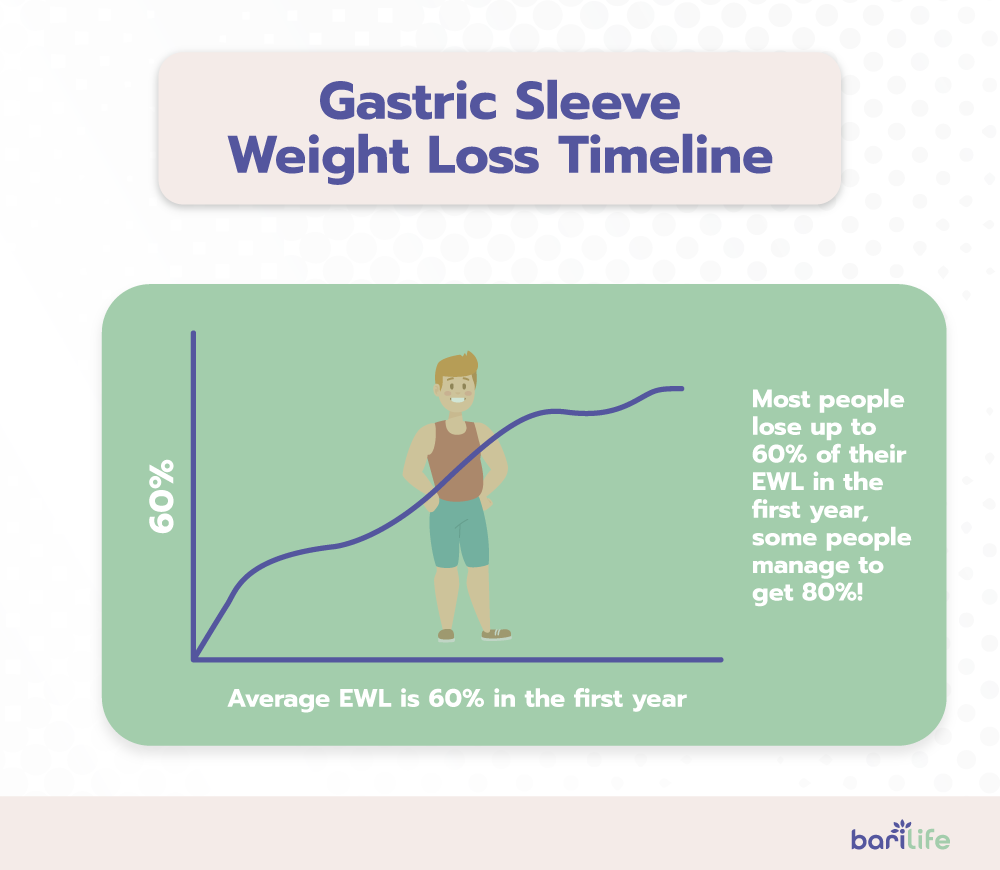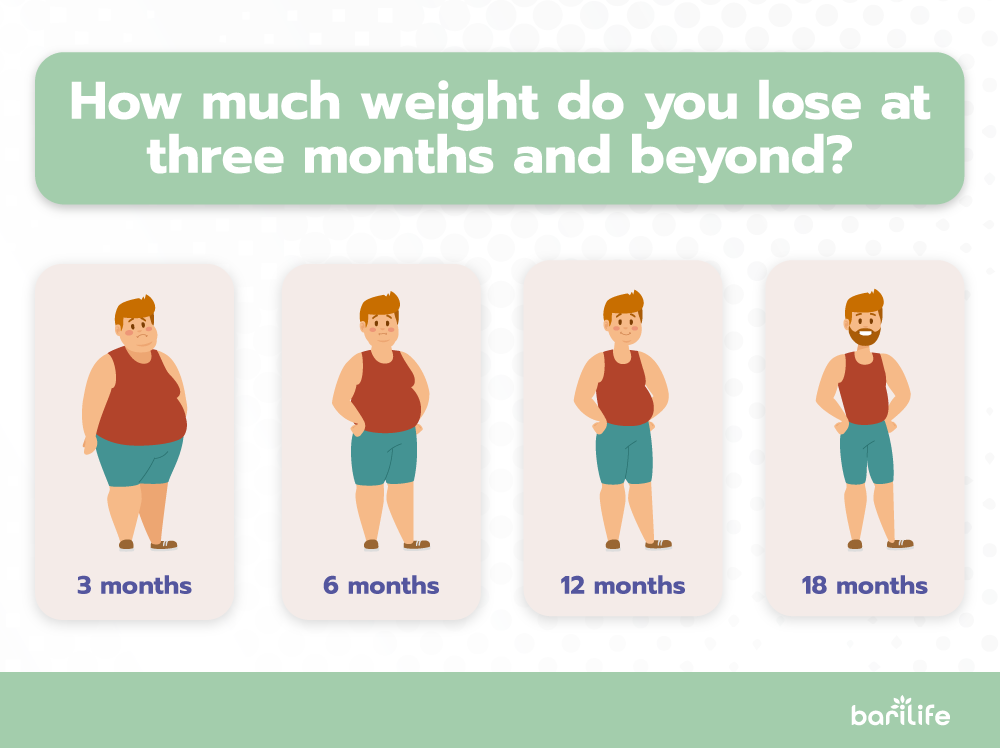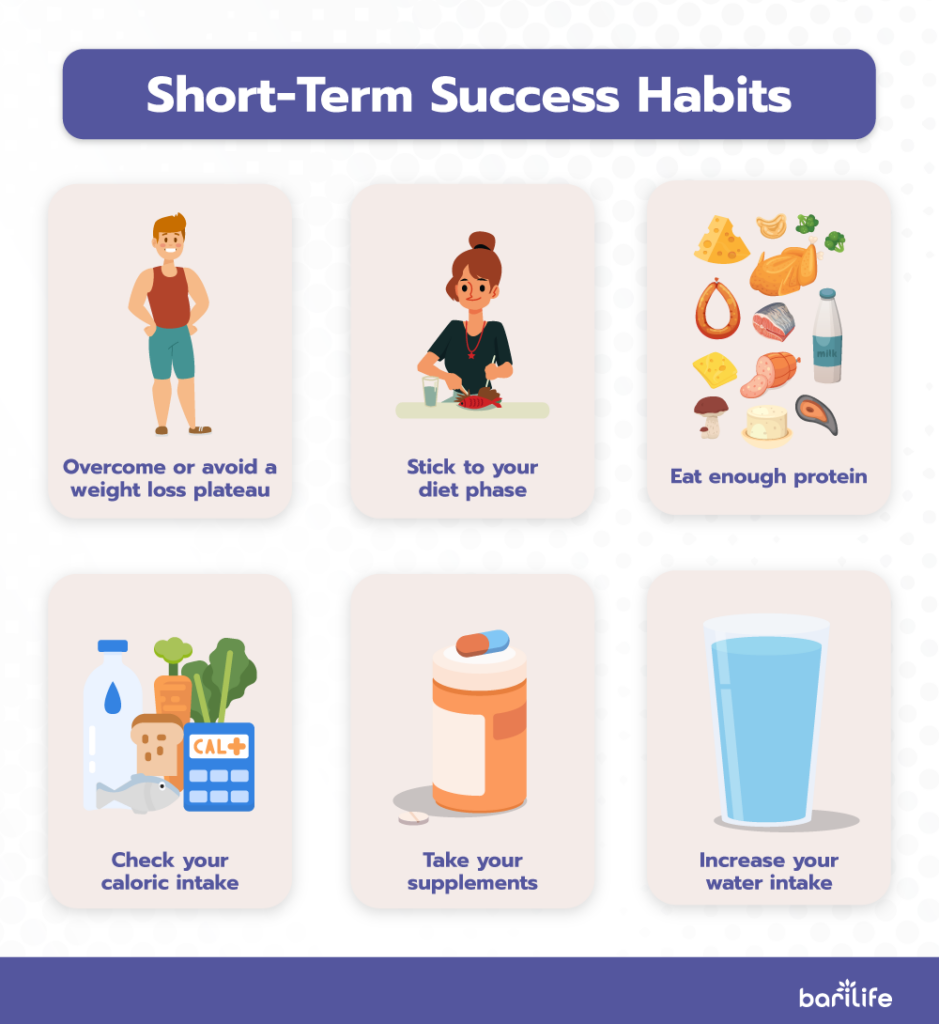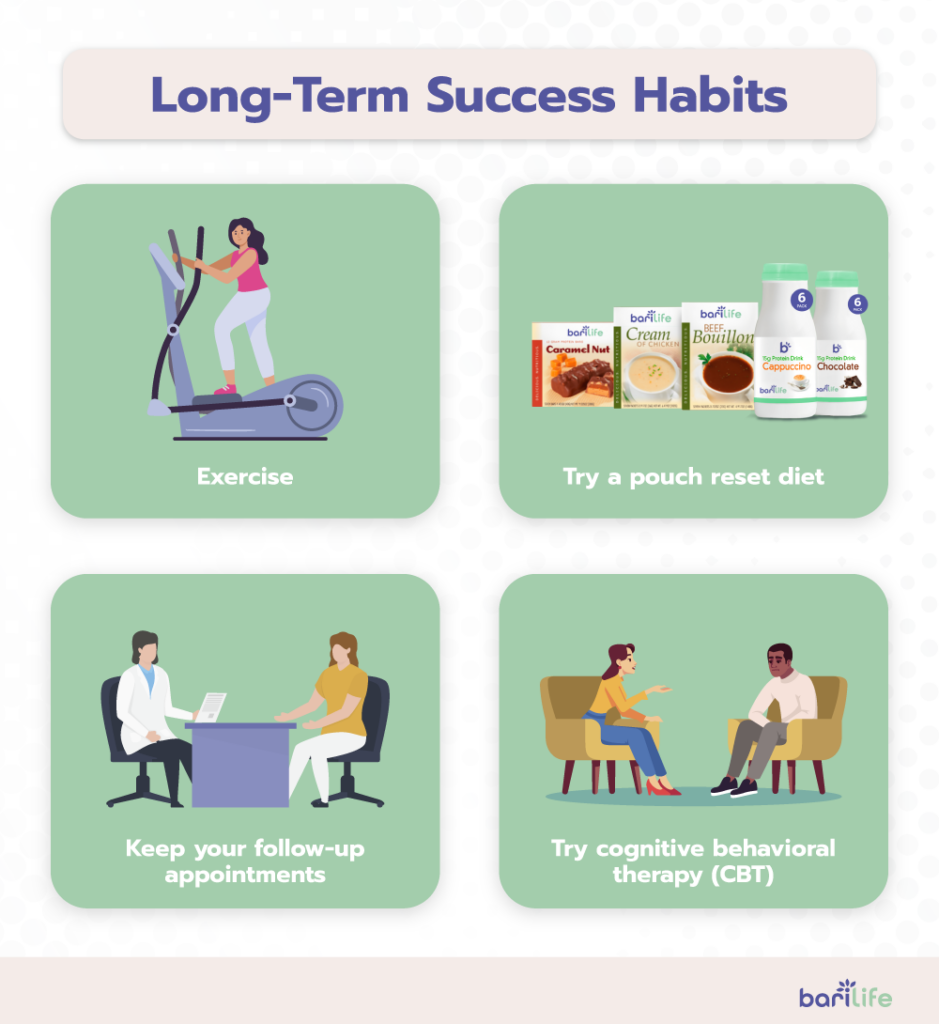Are you considering gastric sleeve surgery and want to know your expected weight loss results? Or maybe you have already had gastric sleeve surgery and want to compare your results after one month or two. In this article, we will review gastric sleeve surgery, expected results after one month, and other monthly milestone markers.
Gastric Sleeve Surgery
Before reviewing your expected results after one month, let’s review the basics. Gastric sleeve surgery is the most popular bariatric weight loss surgery. It has a higher success rate than any other bariatric weight loss surgery, with the average person losing about 50-70% of their excess weight after one year.
Gastric sleeve surgery is recommended treatment for people with a body mass index (BMI) of 40 or higher. It is also recommended for people with a BMI of 35 or greater who have a qualifying chronic health condition.
Gastric sleeve surgery works by reducing the size of your stomach. During surgery, your surgeon will make one large or several small incisions in your abdomen. Through these incisions, they will remove about 80% of your stomach. The portion remaining appears like a narrow sleeve, which is stapled together and ensured for no leakage. Since a portion of your stomach is permanently removed, gastric sleeve surgery is not reversible.
Weight Loss Timeline
Now that we’ve reviewed the basics, let’s review your expected weight loss timeline after gastric sleeve surgery and answer some common questions.
After gastric sleeve surgery, the average person loses about 60% of their excess weight after one year. Others achieve up to 80% excess weight loss long term. Remember, everyone is different! Results and weight loss timelines will vary per person based on your body.

How long after gastric sleeve do you see weight loss?
After you have gastric sleeve surgery, you should expect to see weight loss immediately. During your first week, expect to lose anywhere between two to four pounds. If you lose more – great!
After a few weeks, sometimes your weight loss will slow or come to a complete halt. It can occur anytime during your weight loss journey, but most commonly occurs three weeks after surgery. Thus, it is also referred to as a weight loss plateau or “three-week stall.” Don’t worry, this is normal.
How much weight can you lose in the first month (30 days) after a gastric sleeve?
Next, let’s review your expected gastric sleeve weight loss results after one month. During the first month, expect to lose anywhere between 10-15% of your excess body weight. Excess weight is the amount of weight you should lose after bariatric surgery to meet your ideal weight.
Again, usually this averages about two to four pounds a week. This means your monthly weight loss goal should be around 8 to 16 pounds every month. However, everyone’s weight loss timeline is different. Males tend to lose weight after than females.
How much weight do you lose in the second month after gastric sleeve?
The average excess weight loss (EWL) two months after surgery is about 20%. You should expect to lose anywhere between 16 to 32 pounds two months after surgery. However, this can vary per person depending on your lifestyle habits.

Now that we’ve reviewed that you should expect to lose around two to four pounds a week, let’s review the averages for three months and beyond:
3 months: 25 to 35% EWL
6 months: 45 to 55% EWL
12 months: 65 to 70% EWL
18 months: 70 to 75% EWL
In 2018, a research study found the average three-month EWL was 37.1%. The six and 12-month EWL averages were 57% and 51.2%. At the two-year mark, people who had gastric sleeve surgery had an average of 65% EWL. Again, weight loss depends on the person and your commitment to your new lifestyle and successful habits.
Maximize Your Weight Loss with Successful Habits
Now, let’s review some successful habits to maximize weight loss.
Short-Term Sucess Habits
Initially, expect to have a period of rapid weight loss, which is also known as the “honeymoon phase.” Weight loss will come easy during the first few weeks, but remember, you need to stick with your new, healthier habits. Let’s review some short-term habits below.
- Overcome or avoid a weight loss plateau. As we mentioned before, expect to experience a weight loss plateau or stall around 3 weeks post-surgery. Try some of these great tips to avoid this.
- Eat enough protein. After gastric surgery, you should be eating at least 65 grams of protein a day. Protein helps build muscle and gives you fuel for energy. Here are some delicious protein-packed recipes.
- Check your caloric intake. If you notice you aren’t losing as much weight as expected, check your caloric intake. Keep a food diary of everything you intake, including drinks. Check the portion size and make sure you are following the portion size guidelines as well.
- Increase your water intake. Drink water instead of those empty-calorie drinks. Water is a natural appetite suppressant as well.
- Stick to your diet phase. Always abide by your surgeon’s instructions regarding your diet phase. This will help prevent complications and help you achieve maximal weight loss.
- Take your supplements. Since a portion of your digestive tract is removed, many people post bariatric surgery have vitamin deficiencies. Vitamin B12 deficiency is very common, which can slow your body’s metabolism. Thus, it’s vital to take the vitamins and supplements your surgeon recommends.

Long-Term Success Habits
You will have many ups and downs during your weight loss journey. To achieve and maintain maximal weight loss, you will also need to build many long-term success habits. These include:
- Exercise. Exercise is an important aspect of weight loss. Your routine should include cardiovascular and strength-building exercises. Here are some exercise tips following bariatric surgery to get your body moving.
- Try a pouch reset diet. If you’re having trouble keeping your hunger and sugar cravings under control, try a two-week pouch reset diet.
- Try cognitive behavioral therapy (CBT). CBT helps to improve your mental health and can reduce potential weight regain. Talkspace and Betterhelp offer counseling via telehealth, where you don’t have to leave home.
- Keep your follow-up appointments. You must keep your follow-up appointments with your bariatric surgeon, primary care, and specialty doctors. They can help you track your weight loss and make necessary lifestyle changes. Many people who have bariatric surgery also have comorbidities or chronic conditions. These need to be monitored as well to prevent unnecessary complications, so you can achieve maximal weight loss.
Again, everyone is different and will have varying weight loss timelines and percentages of excess weight loss. Try some of these short and long-term habits to be successful in your weight loss journey.

References
https://www.ifso.com/patient-sleeve-gastrectomy/
https://www.sciencedirect.com/science/article/pii/S1015958418302525




What are your tips and tricks to post-bariatric success?